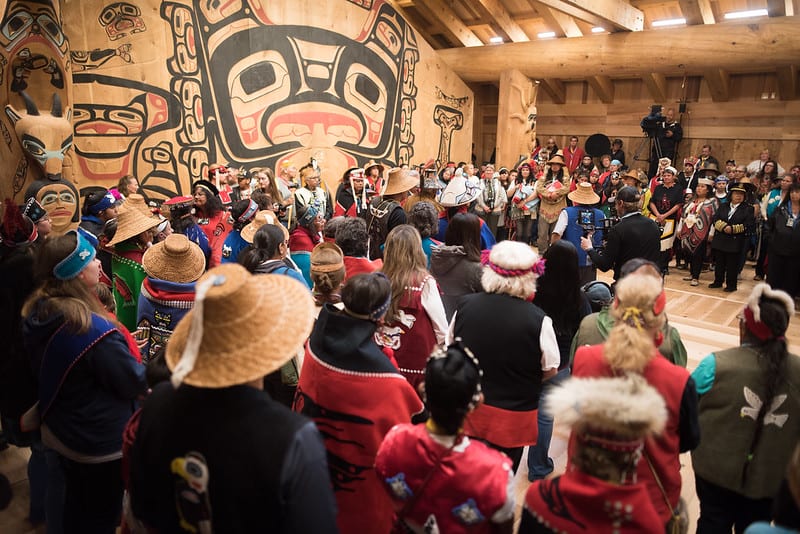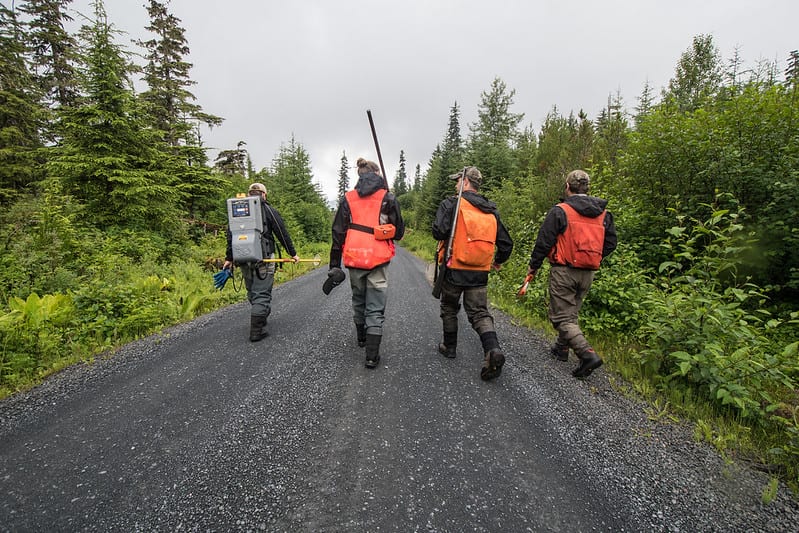Reflecting on the first half of 2021, REAP has made progress on sharing our clean energy message, increasing energy literacy in K-12 students and furthering energy policies that facilitate clean energy development in Alaska.
We spread our clean energy message to Alaskans
Presented at 51 community events
Presentations are a large part of how we educate and inform Alaskans about clean energy. Our 2021 goal is to present at least 60 times throughout the year, and we made considerable progress. In the first half of 2021, the REAP staff made 51 public presentations.
Interested in hosting a REAP presentation? Contact us!

Quoted in 18 news articles
Another way we share our clean energy messages is through media engagement. You can explore our media features from the first quarter in our REAP in the News article. REAP engaged with the media a total of 18 times this year.
Media highlights include:
- Chris Rose was interviewed by Alaska Journal of Commerce about the state green bank
- Chris Rose was quoted in APRN story about Cook Inlet tidal power
- Chris Rose and Rob Jordan quoted in KDLJ story about the Dillingham hydro project
- Rob Jordan was quoted in APRN story about the Sitka ETIPP project
- Clay Good was interviewed live on KTOO radio about STEM and beneficial electrification
- Chris Rose was interviewed about Alaska tidal energy for DoE newsletter
We increased energy literacy of K-12 students
Presented to 575 students and completed trainings for 207 teachers
Energy education is a key pillar to our mission. This year, the STEM education team delivered 51 virtual clean energy presentations or activities to over 575 K-12 students. The STEM Education team also delivered 13 virtual teacher trainings for 207 teachers this year.
To measure our education literacy progress, we develop and deliver pre and post energy literacy assessments. We gave 35 students in the ANSEP STEM Academy summer camp the assessment and the average final scores increased by 252%.

Two Alaskan teams placed in the National KidWind Challenge
REAP partnered with six teachers to recruit 56 students to participate in the National KidWind Challenge. The two teams representing Alaska placed second and fifth out of 31 teams in the National Middle School division.
Distributed 91 educator kits
This year, we distributed 91 kits to parents and educators throughout the state in order to support Wind for Schools, AK EnergySmart and other clean energy education programs and projects.
We supported state energy policies that facilitate clean energy development
Engaged with policymakers
During the first half of the year, REAP met with legislators to promote an Alaskan green bank to finance energy efficiency projects across the state. Legislation introduced by Governor Dunleavy in April, quickly passed through three legislative commitees with REAP and other experts testifying at every hearing.
REAP also maintained communication with our federal delegation to make sure Alaskan clean energy is at the forefront of the national conversation.
REAP staff participated in multiple technical conferences and meetings in front of the Regulatory Commission of Alaska (RCA) regarding the creation of an Electric Reliability Organization for the Railbelt.
The REAP Public Policy Committee, tasked with recommending REAP’s policy priorities, met a total of 7 times to develop a Renewable Portfolio Standard (RPS) for the Railbelt.

Making progress with renewable energy developments in rural Alaska
Five Alaskan communities received Technical Assistance awards through the Energy Technology Innovation Partnership Project (ETIPP), a project that REAP facilitates in Alaska for the National Renewable Laboratory (NREL). REAP is leading the projects in Sitka, Dillingham, and Wainwright and the Alaska Center for Energy and Power is the lead for the projects with the Alaska Longline Fisherman’s Association and the Native Village of Ouzinke.


Engaged non-Railbelt communities
In the first half of the year, REAP staff completed virtual outreach with ANSEP, the Title VI Indian Education camp and the Clean Energy Olympics including students from the following rural communities including Chevak, Holy Cross, Kotzebue, Newtok, Teller, St. Mary’s, Unalakleet, Wales, Klawock, Seldovia, Utqiagvik, Wrangell, Petersburg, and Bethel.
REAP made biomass energy related visits in-person to the Southeast communities of Klawock, Craig, Hydaburg, Kasaan, Thorne Bay, Naukati and Coffman Cove and directly engaged the communities of Kake and Hoonah through virtual meetings.
REAP also engaged with Iliamna, Kwigillingok, Kongiginak, Dillingham, and Tuntutuliak this year.
Are you excited about the work REAP is doing? Here are some ways you can get involved.